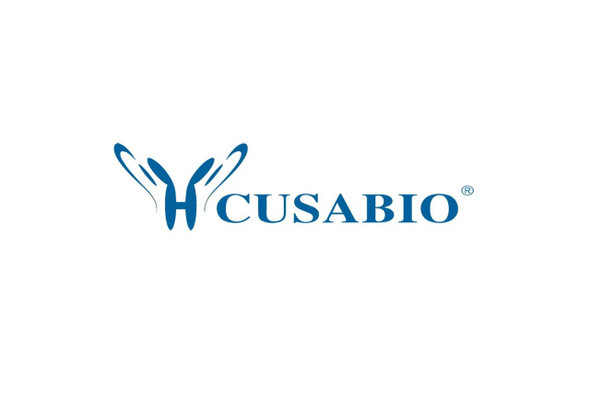Cusabio Human Recombinants
Recombinant Human Peptidyl-tRNA hydrolase ICT1, mitochondrial (ICT1) | CSB-EP613490HU
- SKU:
- CSB-EP613490HU
- Availability:
- 13 - 23 Working Days
Description
Recombinant Human Peptidyl-tRNA hydrolase ICT1, mitochondrial (ICT1) | CSB-EP613490HU | Cusabio
Alternative Name(s): 39S ribosomal protein L58, mitochondrial ;MRP-L58Digestion substraction 1 ;DS-1Immature colon carcinoma transcript 1 protein
Gene Names: ICT1
Research Areas: Metabolism
Organism: Homo sapiens (Human)
AA Sequence: LHKQKDGTEFKSIYSLDKLYPESQGSDTAWRVPNGAKQADSDIPLDRLTISYCRSSGPGGQNVNKVNSKAEVRFHLATAEWIAEPVRQKIAITHKNKINRLGELILTSESSRYQFRNLADCLQKIRDMITEASQTPKEPTKEDVKLHRIRIENMNRERLRQKRIHSAVKTSRRVDMD
Source: E.coli
Tag Info: N-terminal 6xHis-SUMO-tagged
Expression Region: 30-206aa
Sequence Info: Full Length of Mature Protein
MW: 36.4 kDa
Purity: Greater than 90% as determined by SDS-PAGE.
Relevance: Essential peptidyl-tRNA hydrolase component of the mitochondrial large ribosomal subunit. Acts as a codon-independent translation release factor that has lost all stop codon specificity and directs the termination of translation in mitochondrion, possibly in case of abortive elongation. May be involved in the hydrolysis of peptidyl-tRNAs that have been praturely terminated and thus in the recycling of stalled mitochondrial ribosomes.
Reference: Identification of mRNAs that show modulated expression during colon carcinoma cell differentiation.van Belzen N., Diesveld M.P.G., van der Made A.C.J., Nozawa Y., Dinjens W.N.M., Vlietstra R., Trapman J., Bosman F.T.Eur. J. Biochem. 234:843-848(1995)
Storage: The shelf life is related to many factors, storage state, buffer ingredients, storage temperature and the stability of the protein itself. Generally, the shelf life of liquid form is 6 months at -20?/-80?. The shelf life of lyophilized form is 12 months at -20?/-80?.
Notes: Repeated freezing and thawing is not recommended. Store working aliquots at 4? for up to one week.
Function: Essential peptidyl-tRNA hydrolase component of the mitochondrial large ribosomal subunit. Acts as a codon-independent translation release factor that has lost all stop codon specificity and directs the termination of translation in mitochondrion, possibly in case of abortive elongation. May be involved in the hydrolysis of peptidyl-tRNAs that have been prematurely terminated and thus in the recycling of stalled mitochondrial ribosomes.
Involvement in disease:
Subcellular Location: Mitochondrion
Protein Families: Prokaryotic/mitochondrial release factor family, Mitochondrion-specific ribosomal protein mL62 subfamily
Tissue Specificity: Down-regulated during the in vitro differentiation of HT29-D4 colon carcinoma cells.
Paythway:
Form: Liquid or Lyophilized powder
Buffer: If the delivery form is liquid, the default storage buffer is Tris/PBS-based buffer, 5%-50% glycerol. If the delivery form is lyophilized powder, the buffer before lyophilization is Tris/PBS-based buffer, 6% Trehalose, pH 8.0.
Reconstitution: We recommend that this vial be briefly centrifuged prior to opening to bring the contents to the bottom. Please reconstitute protein in deionized sterile water to a concentration of 0.1-1.0 mg/mL.We recommend to add 5-50% of glycerol (final concentration) and aliquot for long-term storage at -20?/-80?. Our default final concentration of glycerol is 50%. Customers could use it as reference.
Uniprot ID: Q14197
HGNC Database Link: HGNC
UniGene Database Link: UniGene
KEGG Database Link: KEGG
STRING Database Link: STRING
OMIM Database Link: OMIM









